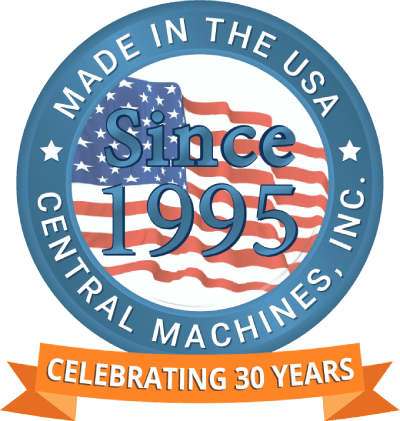Industrial Automation Equipment: Transforming the Manufacturing Landscape
Industrial automation equipment uses control systems, such as computers and robots, to handle different processes and machinery. The revolution of industrial automation has profoundly impacted manufacturing by enhancing operational efficiency, reducing errors, and increasing production flexibility.
This article explores how industrial automation equipment improves operational effectiveness, adapts to various industry needs, and reshapes manufacturing.
Roles of Industrial Automation Equipment in Manufacturing
The following points highlight how automation equipment transforms manufacturing to meet modern demands:
Enhancement of Operational Efficiency
Automation significantly improves operational efficiency by increasing production speed, reducing human error, and ensuring consistent product quality. Automated systems enable real-time monitoring and adjustments, leading to a more streamlined manufacturing process. This boosts overall productivity, which makes operations more efficient and responsive to market changes.
Cost Savings
Using industrial automation equipment leads to substantial cost savings by lowering labor costs and improving resource allocation. Companies can reduce wage expenses with fewer manual labor requirements, while automated systems’ energy-efficient operations cut utility costs. Moreover, resource optimization minimizes waste, driving down production expenses and allowing for reinvestment in other core business areas.
Customization and Flexibility
Automation equipment is highly adaptable to diverse industry needs and offers customization capabilities that cater to specific requirements. Flexible Manufacturing Systems (FMS) enable quick changes in production lines that efficiently accommodate different products. The scalability of automation solutions means they can be adjusted to match production demands, whether for small- or large-scale operations.
Improved Safety
Automation improves workplace safety by reducing the need for human workers to perform dangerous tasks. Advanced safety protocols in automated systems protect machinery and personnel and minimize workplace hazards. This ensures smooth operations by preventing accidents and prioritizing worker safety and health.
Supply Chain Efficiency
Automation streamlines supply chain operations by optimizing logistics and inventory management, which leads to more efficient and reliable processes. Real-time data and analytics from automated systems enhance decision-making and transparency, improving overall supply chain performance. These developments allow manufacturers to adapt quickly to supply chain disruptions and demand fluctuations.
Sustainability and Environmental Impact
Automated systems contribute to sustainability by reducing waste and optimizing energy use. Precise control over production processes minimizes excess material, while energy-efficient practices lower the environmental footprint of manufacturing operations. These sustainable practices improve operational efficiency by reducing resource consumption and production costs.
Innovation and Competitive Advantage
Automation fosters innovation by enabling the experimentation and implementation of new manufacturing techniques. Companies that adopt automation gain a competitive edge through higher quality products, faster production times, and lower costs. This advantage improves operational efficiency by allowing manufacturers to stay ahead of competitors and meet market demands more effectively.
Case Studies of Industrial Automation Success
These are the companies that illustrate the transformative impact of industrial automation across various industries:
Ford Motor Company
Ford Motor Company is a prime example of how industrial automation has revolutionized the automotive industry. They utilize advanced robotics and automation technologies, such as Automated Guided Vehicles (AGVs), robotic arms for assembly, and AI-driven quality control systems. These technologies have increased their production, reduced errors, and helped them achieve higher production rates.
Siemens AG
Siemens AG exemplifies the successful integration of industrial automation in electronics manufacturing. By employing robotic assembly lines, automated material handling systems, and advanced manufacturing execution systems (MES), they improved operational efficiency and reduced lead times. This enabled them to meet the high demands of the electronics market while maintaining quality.
Coca-Cola
In the food and beverage sector, Coca-Cola has extensively automated its bottling plants using automated bottling lines, robotic packaging systems, and real-time data monitoring. As a result, they experienced increased production speed, improved product quality, and substantial cost savings. These enabled Coca-Cola to efficiently manage its extensive product range and large-scale production demands.
Pfizer
Pfizer implemented advanced robotic systems in its manufacturing facilities to automate drug packaging and labeling tasks. This pharmaceutical company’s automation boosted production speed while upholding accuracy and quality control, particularly in filling and packaging insulin vials. This automation also streamlined regulatory compliance by continually monitoring production parameters.
Upgrade Your Automation Efforts With Central Machines, Inc.
Central Machines, Inc. specializes in crafting custom automation equipment. Our innovative approach guides clients seamlessly through the entire production process, from concept to creation. With our USA-manufactured machinery, we enable companies globally to design and deploy automation solutions that perfectly align with their unique needs.
Contact us now to revolutionize your industrial automation capabilities!

